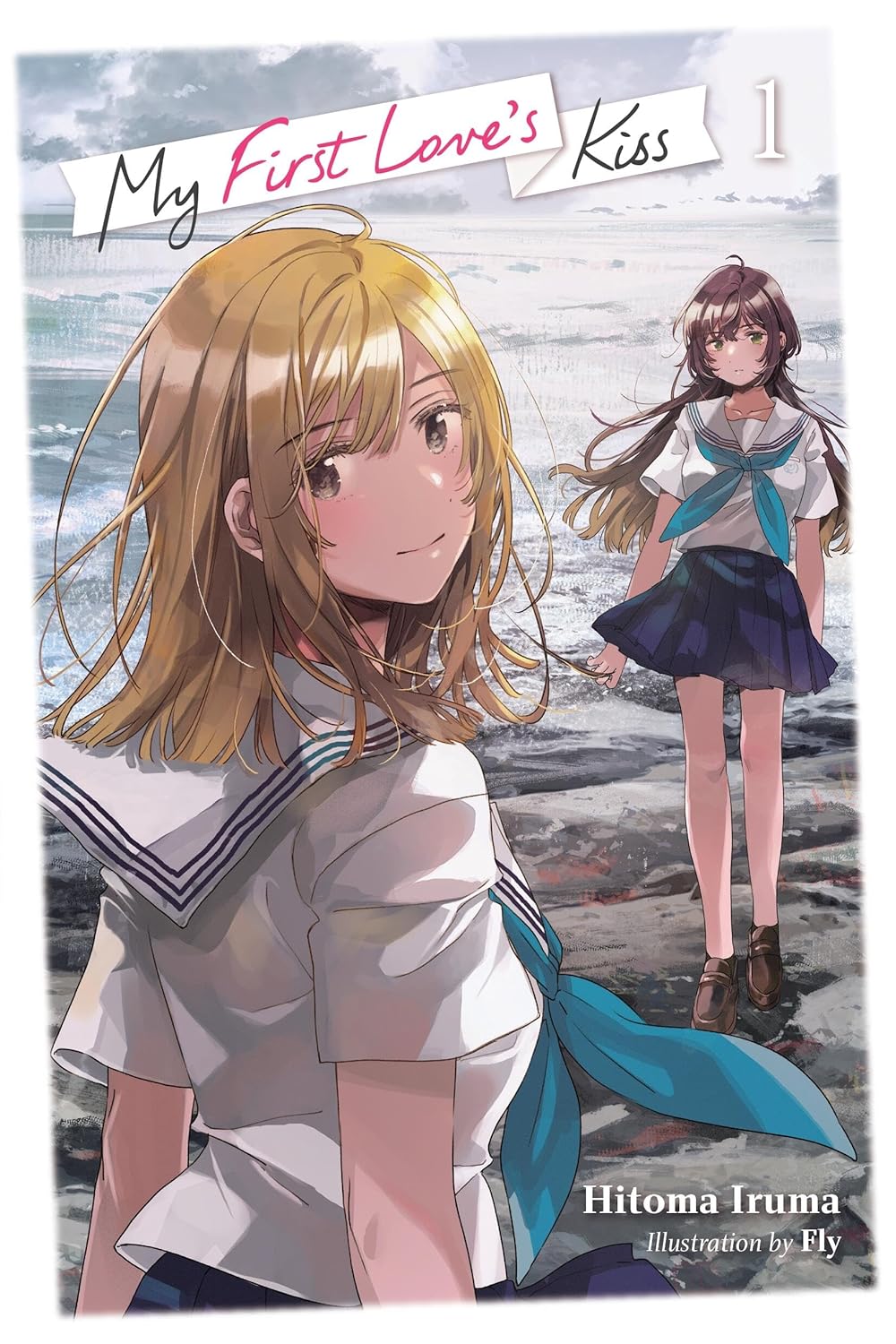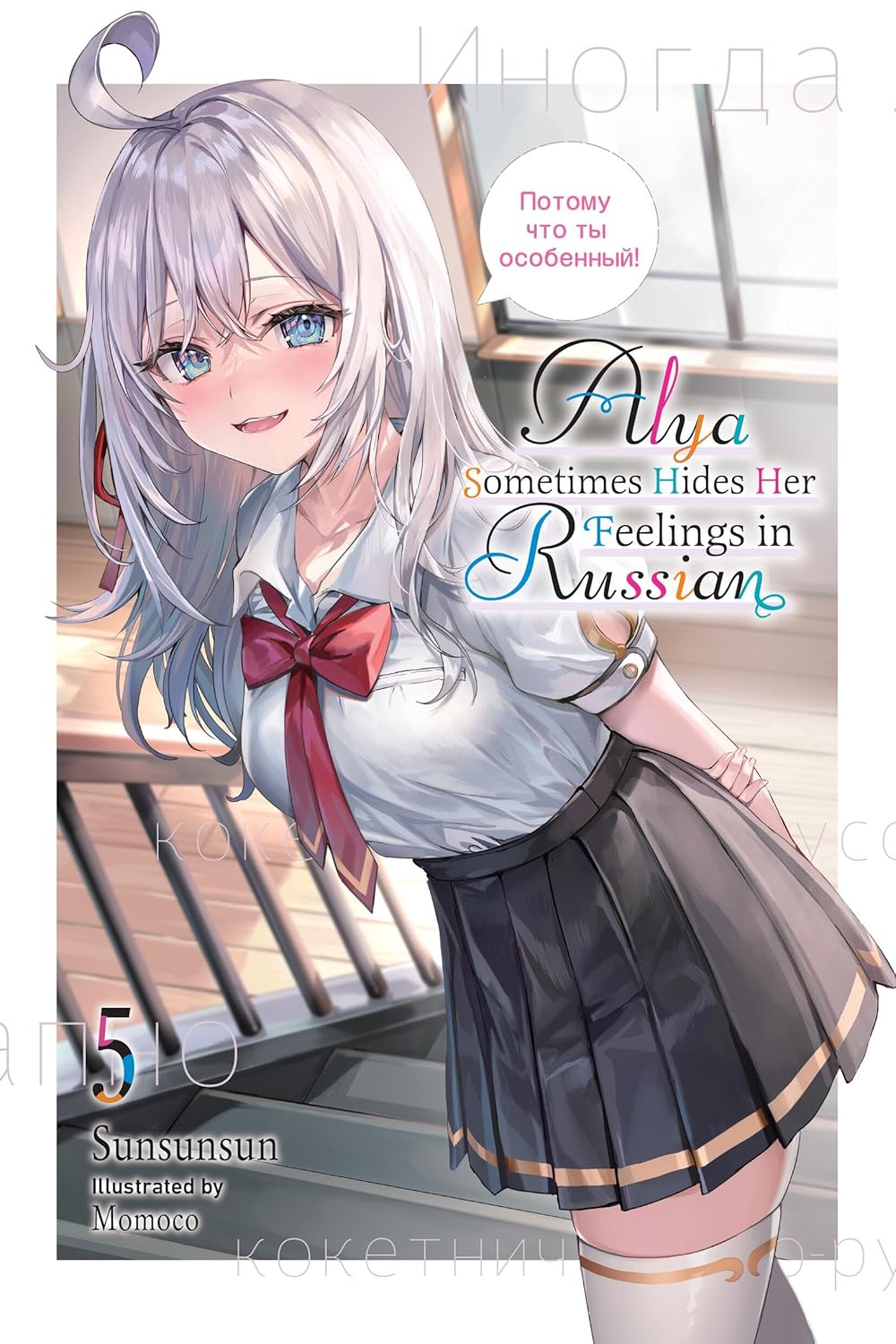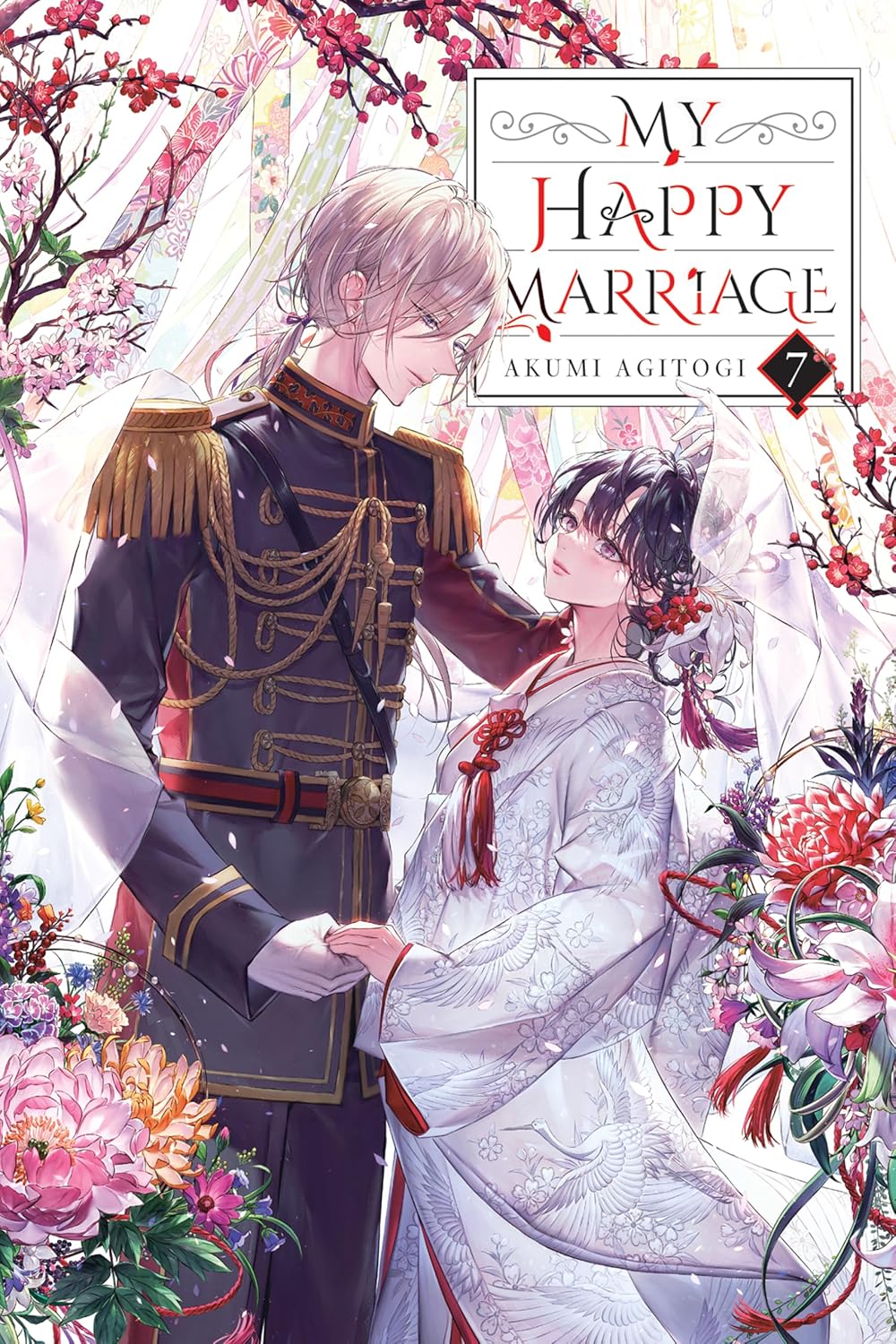By Hitoma Iruma and Fly. Released in Japan as “Watashi no Hatsukoi Aite ga Kiss Shiteta” by Dengeki Bunko. Released in North America by Yen Press. Translated by Kiki Piatkowska.
Tempted as I am to just write “Christ on a cracker” and let that be my review, I suppose I should get into the nuts and bolts of this thing. First of all, I feel retroactively annoyed with Adachi and Shimamura 11. I’ve mentioned many times before how this author has a cast of characters that are all part of the same “world”, and they flit in and out of each other’s series. That was the case with Adachi and Shimamura 11’s review as well. Little did I realize just how MUCH those characters took up all of Book 11, to the point where it now reads as nothing more than an ad for the author’s darker yuri series. (A&S 11 came out the same day as the final volume of this one.) The author also states in the afterword that this is a “romantic comedy”, then admits readers will get annoyed at them for saying it. Which is very true. This is a trawl through the sewers of love, and it will make you feel dirty.
Takasora is very, very surprised when her mother one day brings home someone she knew when she was in school, along with the woman’s teenage daughter, and announces that they’re now living there. The other teen, Umi, is very pretty (a fact Takasora will mention over and over again throughout this book), but also doesn’t seem all there, and there’s clearly something going on behind the scenes that Takasora… really doesn’t want to get involved with. Unfortunately for her, not only does she slowly begin to get obsessed with Umi as the days go by, but she also notices Umi going out late at night and frequently staying out all night. And there are rumors that she’s doing compensated dating. Are the rumors correct? The other half of the book is Umi’s story, which tells us that a) yes, they are correct, and b) it’s far more desperately awful than we’d like.
So, first of all, the opening of this novel features physical abuse of one of the heroines. FYI. Secondly, the rest of the book features emotional manipulation of the same heroine. Takasora is the easier part of this book. She’s immediately very attracted to Umi, can’t really work out why, and spends the book realizing that she’;s in love. Umi has spent most of her life bouncing from house to house with her mother. The better households ignore her, the worse ones abuse her. Then six months ago, she meets a gorgeous older woman who wants to pay her lots of money to have sex with her. And Umi falls for this lady HARD. It’s the first caring and affection she’s ever really received, and even though she knows the woman is a creepy pervert, and that this is illegal, and that love is not involved, she still confesses and begs her to NOT pay her anymore and just date her normally. (Something which the other woman notably does NOT do.)
A brief extra note to talk about the connections to Adachi and Shimamura, for fans of that series who I know are curious. The first half of A&S 11 can pretty easily be understood after reading this volume. The “kimono lady” 15-year-old Shimamura meets, who acts creepy but states straight up that Shimamura is one year too young for her, is the lady who is involved with 17-year-old Umi in this series. The last half of the book might be more confusing, as I’m pretty sure the senpai that Shimamura meets on her vacation with Adachi in Takasora from this book, only their personality is literally NOTHING like this Takasora, so I may be wrong. Most ominously, Chiki (the kimono lady) at one point apologizes to Umi for being a) late and b) in an out-of-place yukata, as she was “visiting Hino”. Hino as in Hino and Nagafuji Hino?!?! It’s even implies she stays at their estate. Given everything about Chiki makes me recoil in horror, I kind of hate this.
I will probably read the other two books in this series, as I want to see what happens and how it ties in to a yuri series I do enjoy. But man, I cannot recommend this at all unless you revel in the most toxic yuri and do not mind feeling like your skin is crawling while reading most of this.



